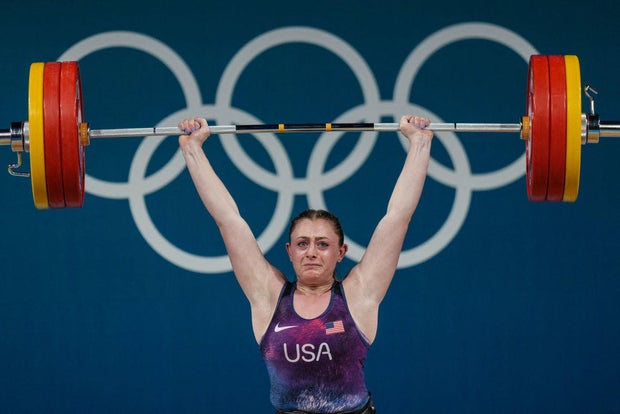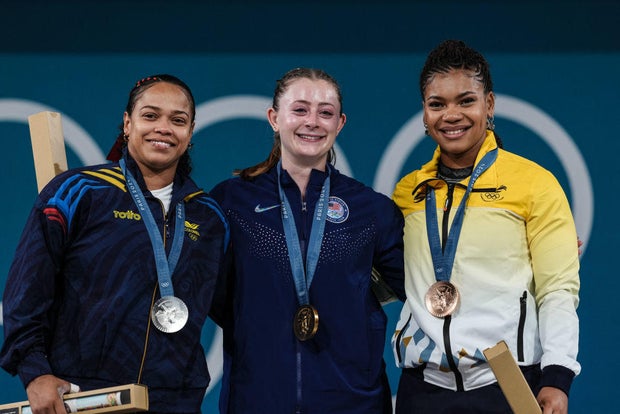Olivia Reeves made history by winning the United States’ first Olympic gold medal in weightlifting in 24 years at the Paris Olympics on Friday.
Reeves showcased her strength by lifting 117 kilograms (390 pounds) in the snatch and 145kg (320 pounds) in the clean and jerk, achieving a total of 262kg. This outstanding performance outshone Mari Leivis Sanchez of Colombia by five kilograms in the women’s 71kg division, with Angie Dajomes of Ecuador taking the bronze.
Despite her calm appearance during the competition, Reeves revealed that she was actually feeling nervous. She aimed to treat the Olympics like any other event but admitted, “I got more nervous than all the others, so it didn’t really work.”
### Insight: The Mental and Emotional Challenges of Elite Competition
Elite athletes often face immense pressure and intense emotions during high-stakes competitions like the Olympics. Olivia Reeves’ admission of feeling nervous despite her calm exterior sheds light on the mental and emotional challenges athletes must overcome to perform at their best on the world stage.
DIMITAR DILKOFF/AFP via Getty Images
During the medal ceremony, emotions ran high as Reeves wiped away tears and took deep breaths while the U.S. anthem played.
### Insight: The Emotional Impact of Victory
The release of emotions and the overwhelming sense of achievement that come with winning an Olympic gold medal can be a powerful and moving experience, as demonstrated by Olivia Reeves during the medal ceremony.
Reeves’ choice to start with higher weights than her competitors in both parts of the competition proved successful as she completed her first five lifts, barring a failed attempt after securing the gold medal.
### Insight: Strategic Decision Making
Reeves’ strategic decision to start with higher weights showcased not only her confidence in her abilities but also her calculated approach to the competition, ultimately leading to her victory.
DIMITAR DILKOFF/AFP via Getty Images
The victory of Olivia Reeves marks a significant moment for American weightlifting, as the last Olympic gold in this event was achieved in Sydney in 2000.
“I hope that this can inspire any young girl who wants to do this. I think to be a representative in this sport means a lot, and I’m proud to have that role,” Reeves expressed.
### Insight: Inspiring the Next Generation
Reeves’ humble and aspirational words reflect her desire to inspire and pave the way for future generations of female weightlifters, encouraging young girls to pursue their dreams in the sport.
Olivia Reeves’ gold medal follows the historic bronze medal won by Hampton Morris earlier in the week, marking a significant milestone for U.S. weightlifting.
### Insight: Uplifting Achievements
The collective success of Olivia Reeves and Hampton Morris at the 2024 Paris Olympics highlights a resurgence in U.S. weightlifting achievements and sets a positive tone for the future of the sport in the country.
Separately, Karlos Nasar of Bulgaria made a remarkable comeback by winning weightlifting gold at the Olympics, setting new world records after a challenging injury.
### Insight: Overcoming Adversity
Karlos Nasar’s inspiring journey from adversity to triumph serves as a testament to resilience and unwavering determination, showcasing the true spirit of an Olympic champion.
Nasar’s exceptional performance in the men’s 89-kilogram division not only secured him the gold but also set a new world record, symbolizing his triumph over the obstacles he faced.















